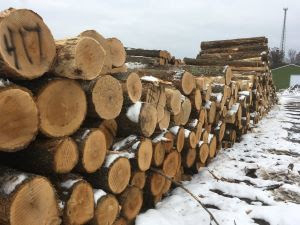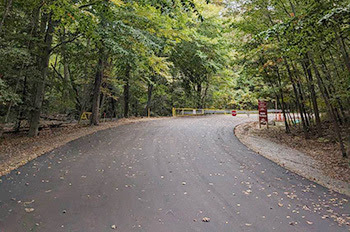New Report Shows Economic Importance of Wood Products Industry

Where would you live without the lumber your house is built of?
What would you do without furniture, maple syrup and toilet paper?
Wood products are important, and so are the industries that create them. A new report from the Northeast-Midwest State Foresters Alliance summarizes estimates of economic contributions to local economies in 20 northern states.
“Forest products industries are an important part of the economy in many northern states,” said Jeff Stampfly, Michigan’s state forester and chief of the Forest Resources Division of the Michigan Department of Natural Resources. “Sustainable forest management provides wood and paper products we use every day. It also provides habitat for wildlife, clean water and air. It is increasingly recognized as an important part of mitigating climate change. This report helps quantify one aspect of those benefits.“
Forest products directly provide 540,000 jobs in region
The forest products industry starts with businesses that manage forests and also includes loggers, sawmills, furniture and solid-wood-product manufacturers, OSB and composite board plants as well as pulp and paper mills. These businesses directly provide 540,000 jobs and support more 1.4 million jobs in the Northeast and Midwest.
“Total sales or output from the forest products industries were about $327 billion in 2017, and that’s nothing to sneeze at,” said David Neumann, Michigan DNR forest marketing and utilization specialist. Those figures are the most recent ones available.
The report was produced as part of a three-year project involving 18 of 20 states in the Northeast and Midwest. The project was supported by a U.S. Forest Service 2017 Landscape Scale Restoration Grant. End products of the project will eventually include the region-level report, state-level reports for the 18 participating Alliance states plus Nebraska, two-page summary bulletins for each report, and an interactive dashboard. The DNR contracted with Public Sector Consultants, a Lansing-based consulting firm, to develop the analysis and reports.
Bigger industry impact in many rural areas
In many Northeast and Midwest states, forestry and forest products may have an outsized impact in rural communities as important local employers.
“In previous studies in Michigan, we saw that forest products companies made up about 6 percent of total manufacturing jobs statewide but represented more than one-third of manufacturing jobs in the rural Upper Peninsula,” said Jagdish Poudel, DNR forest economist. He said the project was groundbreaking in several ways.
“Previous economic analyses have only been conducted for individual states, and often with differing data, methods and collections of forest products companies,” he said. “This project established a standard framework or methodology for conducting contributions analyses. As part of the process, the participating states came to agreement on the collection of sectors that were used to represent the forest products industries in the Northeast-Midwest region.”
Establishing this kind of framework also enables one-to-one comparisons between states in the region and over time.
The top states in the region in terms of direct employment were Pennsylvania, Wisconsin, Indiana, Ohio, New York and Michigan, each with more than 40,000 jobs.
Report taps maple syrup forest economy data
Newly included in the report is the sap production portion of maple syrup industries.
“In some northern states, maple syrup industry employment was the largest contributing sector in terms of direct forestry jobs,” Poudel said.
Syrup often is categorized as part of agricultural production industries, even though nearly all work takes place in the forest.
“Maple syrup is an industry with tremendous growth potential in the Northeast and Midwest,” said Neumann. “Maple syrup production provided about 6,200 jobs in the region, with the greatest number in Vermont, New York, New Hampshire and Maine.”
Michigan’s maple syrup production is estimated at 170,000 gallons for the 2020 season, according to the U.S. Department of Agriculture. Michigan ranked fifth in production with 570,000 taps in trees.
|





